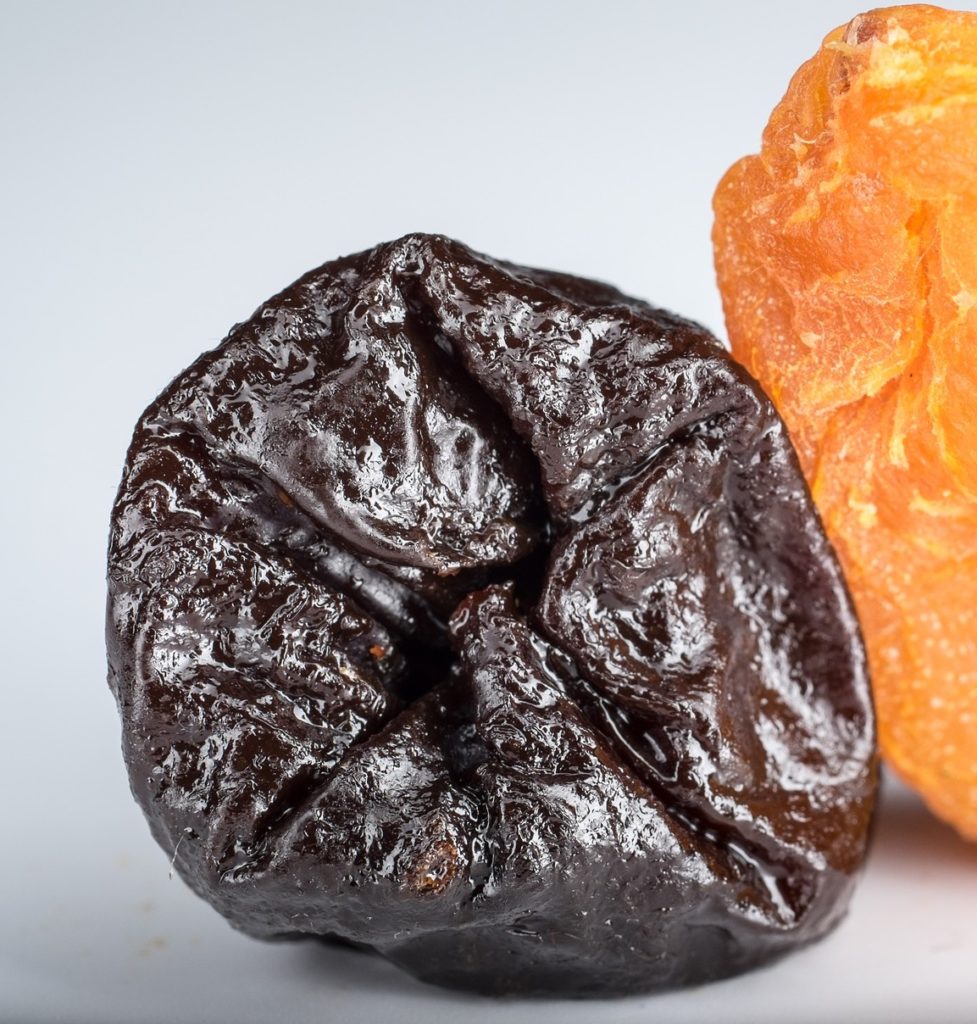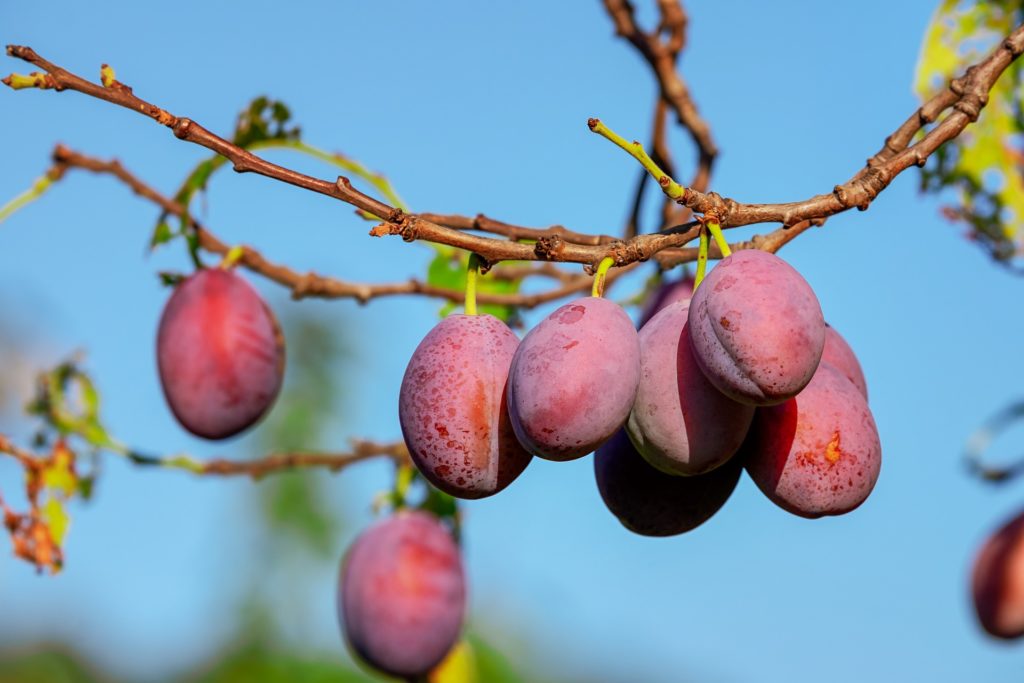Prunes: Potential Benefits for the Gut, Bones and Heart

Prunes seem to get a bad rap. So much so, that the food industry has taken to calling them dried plums as a way to disassociate them from the negative stigma. While prunes are commonly associated with the embarrassments of constipation, based on their additional benefits, prunes likely could be considered a “superfood.”
Potential benefits of prunes include:
- Reducing or eliminating constipation and improving gut health
- Supporting bone health by reducing bone loss and encouraging the growth of new bone
- Decreasing blood pressure and improving cholesterol levels
Prunes and the Gut
The data on the efficacy of prunes for treating constipation is surprisingly good. While we often think of fiber as the go to treatment, prunes were shown to soften stool more effectively than psyllium fiber. They also improved symptoms in 70% of patients, as compared to 55% with fiber, in one clinical trial (Attaluri 2011). Other studies have found similar benefits with prunes outperforming psyllium fiber for improved stool consistency (Chey 2021)
A review of the research concluded that prunes are likely superior to psyllium fiber for constipation (Lever 2014). However, like a lot of natural remedies, they say more data is needed to know for sure.
Some individuals may have more gas with prunes, although transient increased flatulence is often associated with gut flora changes. Prunes have been shown to help increase beneficial bifidobacteria found in the gut (Lever 2019).
Prunes and Bone Health
And while it’s widely understood that prunes can help with constipation, their effects on bone health are less well known. An early trial compared dried apple to dried prune in postmenopausal women and found improved markers of bone formation with prune consumption (Arjmandi 2002). Animal studies have also found that prunes can potentially reverse bone loss (Deyhim 2005, Soliman 1998).

A review in 2017 concluded that cell and animal models have found that prunes decrease bone resorption and increase bone formation. It may be partly due to their antioxidants (Wallace 2017).
A recent case report also suggests the potential of prunes for bone health. During a study assessing prunes with calcium and vitamin D for osteoporosis, one of the participants in the control group lost 7.6% of their bone density in the lumbar spine. The lumbar spine is the most common site of fractures in osteoporosis. At the end of the study, the woman started consuming 50 grams of prunes a day. By 16 months, she’d regained all the lost bone density in her lumbar spine, with additional modest benefits in most other locations (Strock 2021).
Prunes and Heart Health
The research on prunes and heart health is also of interest. An early study in men on the effects of prune consumption and cholesterol found reductions in “bad” low-density lipoprotein (LDL) cholesterol (Tinker 1991).
Animal studies also appear to confirm the cholesterol lowering benefits (Tinker 1994, Lucas 2000). A study in mice even found that consistent prune consumption could slow the development of heart disease by decreasing atherosclerotic plaques, the fatty build-up inside arteries that can calcify and form blood clots (Gallaher 2009).
A clinical trial of prunes and elevated blood pressure found that prunes could lower blood pressure and LDL cholesterol in patients with prehypertension (Ahmed 2010). A study on patients with mildly elevated cholesterol found reductions in both total and LDL cholesterol as well (Chiu 2017).
Conclusion
Prunes are an incredibly simple approach for helping with constipation, bone loss and heart disease. While they do contain significant sugar and shouldn’t be eaten in excess, reasonable, daily consumption of prunes can likely confer significant health benefits. Hopefully, as the research continues, we can start to change the negative perceptions associated with the dried fruit.


